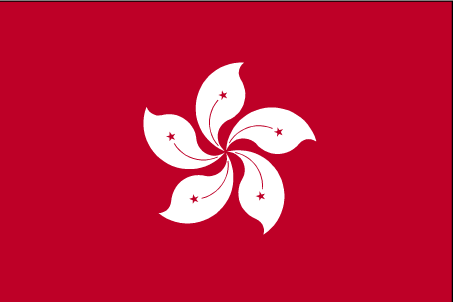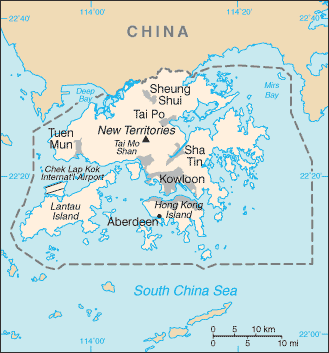Investing in Hong Kong


Hong Kong has a free market economy highly dependent on international trade and finance - the value of goods and services trade, including the sizable share of re-exports, is about four times GDP. Hong Kong's open economy left it exposed to the global economic slowdown, but its increasing integration with China, through trade, tourism, and financial links, helped it recover more quickly than many observers anticipated. The Hong Kong government is promoting the Special Administrative Region (SAR) as the site for Chinese renminbi (RMB) internationalization. Hong Kong residents are allowed to establish RMB-denominated savings accounts; RMB-denominated corporate and Chinese government bonds have been issued in Hong Kong; and RMB trade settlement is allowed. The territory far exceeded the RMB conversion quota set by Beijing for trade settlements in 2010 due to the growth of earnings from exports to the mainland. RMB deposits grew to roughly 4.6% of total system deposits in Hong Kong by the end of 2010, an increase of over 392% since the beginning of the year. The government is pursuing efforts to introduce additional use of RMB in Hong Kong financial markets and is seeking to expand the RMB quota for 2011. The mainland has long been Hong Kong's largest trading partner, accounting for about half of Hong Kong's exports by value.
Hong Kong's natural resources are limited, and food and raw materials must be imported. As a result of China's easing of travel restrictions, the number of mainland tourists to the territory has surged from 4.5 million in 2001 to 22.5 million in 2010, outnumbering visitors from all other countries combined. Hong Kong has also established itself as the premier stock market for Chinese firms seeking to list abroad. In 2010 mainland Chinese companies constituted about 19% of the firms listed on the Hong Kong Stock Exchange and accounted for 62% of the Exchange's market capitalization. During the past decade, as Hong Kong's manufacturing industry moved to the mainland, its service industry has grown rapidly and in 2009 accounted for more than 90% of the territory's GDP. GDP growth averaged a strong 3.8% from 1989 to 2010. Hong Kong's GDP fell in 2009 as a result of the global financial crisis, but a recovery began in third quarter 2009, and the economy grew nearly 6.8% in 2010. The Hong Kong government adopted several temporary fiscal policy support measures in response to the crisis that it may discontinue if strong growth is sustained. Credit expansion and tight housing supply conditions caused Hong Kong property prices to rise rapidly in 2010, and some lower income segments of the population are increasingly unable to afford adequate housing. Hong Kong continues to link its currency closely to the US dollar, maintaining an arrangement established in 1983.
Monetary Authority of Hong Kong - http://www.info.gov.hk/hkma/
AIA Group
Asm Pacific Technology
Bank Of East Asia
Boc Hong Kong Holdings
Cathay Pacific Airways
Cheung Kong Holdings
Cheung Kong Infrastructure
Clp Holdings
Esprit Holdings
Foxconn International Hldgs
Galaxy Entertainment Group
Hang Lung Group
Hang Lung Properties
Hang Seng Bank
Henderson Land Development
Hong Kong & China Gas
Hong Kong Exchanges and Clearing - http://www.hkex.com.hk/
Hopewell Holdings
Hutchison Whampoa
Hysan Development Co
Kerry Properties
Li & Fung
Lifestyle Intl Hldgs
Link Reit
MTR Corp
New World Development
Nws Holdings
Orient Overseas Intl
Pccw
Power Assets Holdings
Sands China
Shangri-La Asia
Sino Land Co
Sjm Holdings
Sun Hung Kai Properties
Swire Pacific 'A'
Wharf Holdings
Wheelock & Co
Wing Hang Bank Limited
Wynn Macau
Yue Yuen Industrial Hldg
Learn more:
Back to Country Investing



